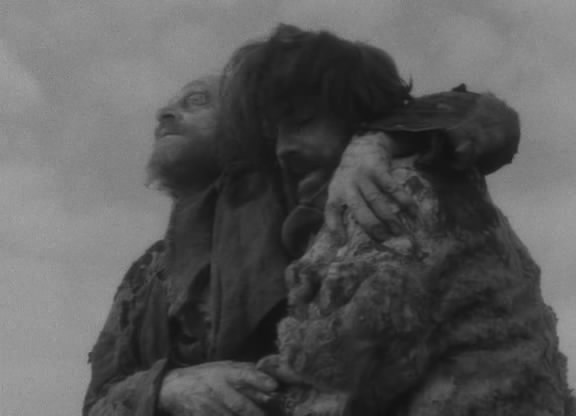The scene with Thersites in Book II of the Iliad is one of the most famous in the whole epic, and with good reason. Not only is it very peculiar, but it also gives voice to what any young person reading the Iliad for the first time must be thinking: why on earth are all these people getting killed for Menelaus just because someone stole his wife?
Thersites more or less asks what the point of the whole Trojan War is and gets beaten and humiliated for his trouble. Here is the scene, abridged a bit, in Richmond Lattimore’s translation:
But [Thersites], crying the words aloud, scolded Agamemnon:
‘Son of Atreus, what thing further do you want, or find fault with
now? Your shelters are filled with bronze, there are plenty of the choicest
women for you within your shelter, whom we Achaians
give to you first of all whenever we capture some stronghold.
Or is it still more gold you will be wanting, that some son
of the Trojans, breakers of horses, brings as ransom out of Ilion,
one that I, or some other Achaian, capture and bring in?…
My good fools, poor abuses, you women, not men, of Achaia,
let us go back home in our ships, and leave this man here
by himself in Troy to mull his prizes of honour
that he may find out whether or not we others are helping him.
And now he has dishonoured Achilleus, a man much better
than he is. He has taken his prize by force and keeps her….’So he spoke, Thersites, abusing Agamemnon
the shepherd of the people. But brilliant Odysseus swiftly
came beside him scowling and laid a harsh word upon him:
‘Fluent orator though you be, Thersites, your words are
ill-considered. Stop, nor stand up alone against princes.
Out of all those who came beneath Ilion with Atreides
I assert there is no worse man than you are. Therefore
you shall not lift up your mouth to argue with princes,
cast reproaches into their teeth, nor sustain the homegoing….’So he spoke and dashed the sceptre against his back and
shoulders, and he doubled over, and a round tear dropped from him,
and a bloody welt stood up between his shoulders under
the golden sceptre’s stroke, and he sat down again, frightened,
in pain, and looking helplessly about wiped off the tear-drops.
Sorry though the men were they laughed over him happily,
and thus they would speak to each other, each looking at the man next him:
‘Come now: Odysseus has done excellent things by thousands,
bringing forward good counsels and ordering armed encounters;
but now this is far the best thing he ever has accomplished
among the Argives, to keep this thrower of words, this braggart
out of assembly. Never again will his proud heart stir him
up, to wrangle with the princes in words of revilement.’So spoke the multitude….
Moses Finley, in his powerful little book The World of Odysseus, says:
Those final words, “so spoke the multitude,” protest too much. It is as if the poet himself felt that he had overdrawn the contrast. [Homer says that] even the commoners among the Hellenes stood aghast at Thersites’ defective sense of fitness, and though they pitied him as one of their own, they concurred with full heart in the rebuke administered by Odysseus and in the methods he employed. “This is by far the best thing he has done among the Argives” indeed, for Thersites had gnawed at the foundations on which the world of Odysseus was erected.
And indeed, it’s pushing it to have the other commoners praise Odysseus and ridicule one of their own. Another odd note is sounded by having it be Odysseus, easily the slimiest of the aristocratic warriors, administer the rebuke. Odysseus got a lot slimier after Homer, with the introduction of stories about him framing Palamedes for treason and getting him stoned to death. Still, he’s about the last person you’d expect the commoners to cheer for, especially compared to the far more appealing Achilles.
On the other hand, this might well be what you’d expect the multitude to say if they were completely cowed by a social system privileging an aristocratic upper class of princes, either out of fear or false consciousness. “Good work, Odysseus! Put us in our place!”
Hegel and Nietzsche picked up on this to some extent, and Nietzsche, as usual, had a good line about it: “Socrates is the revenge for Thersites…the ugly plebeian Socrates killed the authority of the wonderful myth in Greece.”
Simone Weil, siding of course with Thersites, had a good line too: “Reasonable words fall into the void.”
But to go back to the scene itself, the most painful part does not seem to be the beating but the jeering, coming from the very people Thersites seemed to be speaking for. Every time you are shot down from a position of greater authority, every time you are chastised for speaking out of turn, each time you meet the ridicule of your own peers for questioning your superiors, each time you are put in your place, you are Thersites. And if you have never experienced this feeling, you should look closely at your life.
